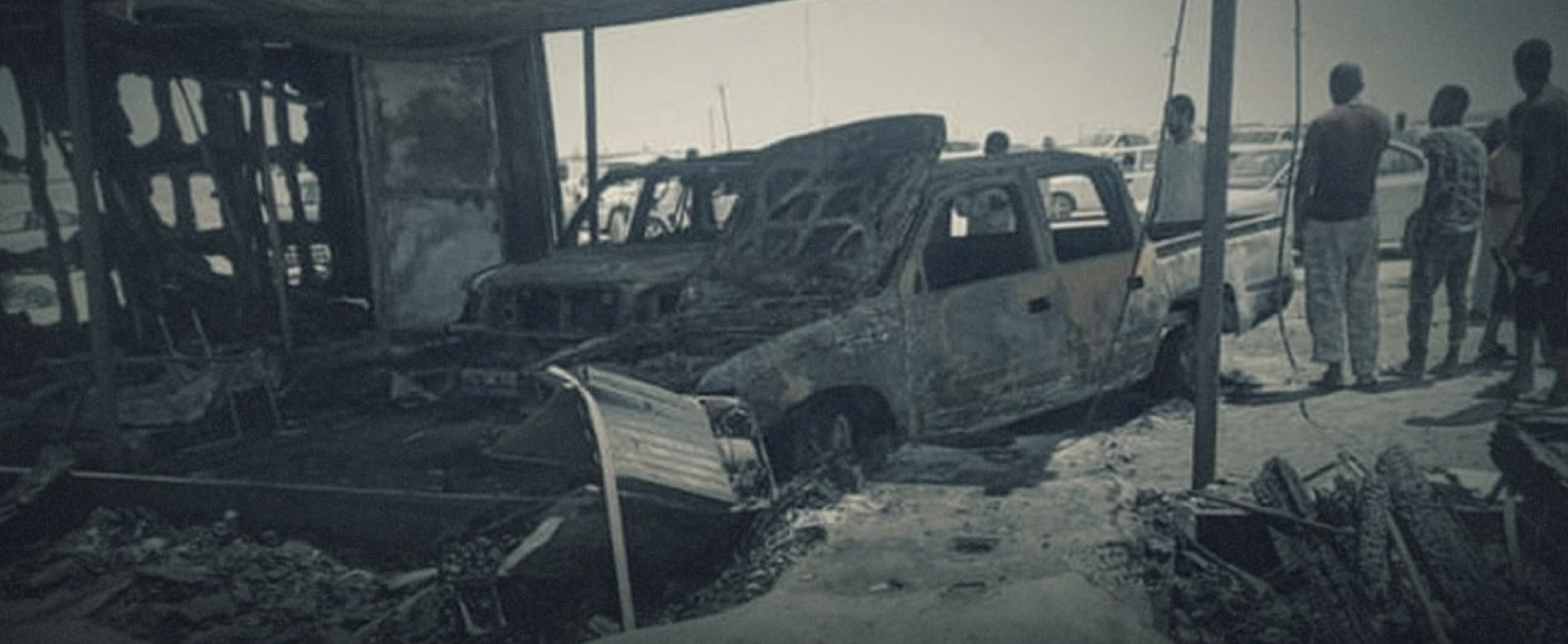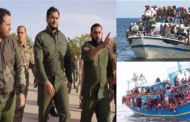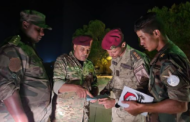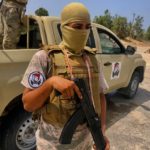Aug. 22, suicide bombing targets security checkpoint in Zillah area, causing only material damage. LNA spox Al-Mismari says driver was “ISIS member”.
Libyan House of Reps approves direct presidential election bill.
Tunisia border on alert as terrorists reportedly stationed in Libya’s Al-Watiya AB planning to infiltrate Tunisia.
TRIPOLI
- Security forces in Libya have arrested a gang of 13 people involved in a string of kidnapping and robbery cases in Tripoli. The Libyan Interior Ministry said the gang is being charged with the kidnapping of a car parts dealer’s son in the Janzour area, and releasing him after receiving a ransom. They were also accused of kidnapping Ali Al-Kaikh from Qasr Bin Ghashir region, and armed robbery in the home of a member of the Public Prosecution Office. The group reportedly planned to kidnap the son of a prominent businessman, as well as a foreign currency dealer in the Souq Al-Jumaa area, according to their confessions;
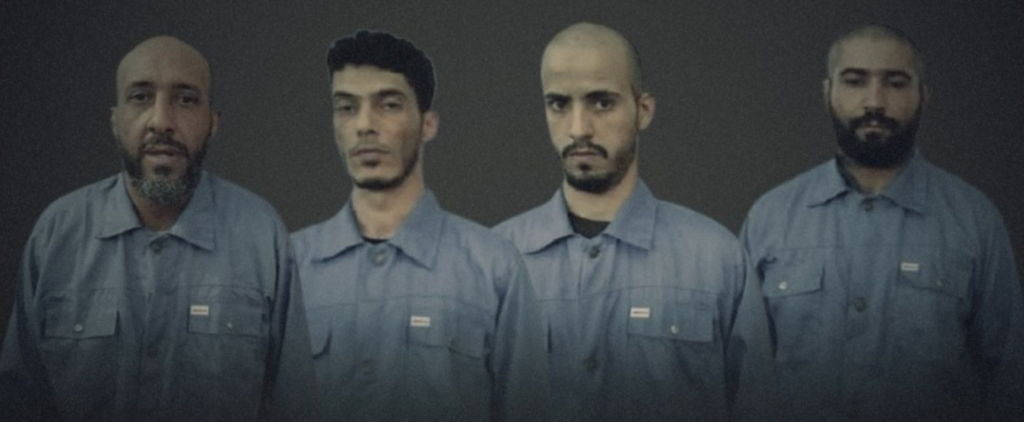
- Aug. 18, the Libyan Coast Guard said it has rescued 172 African migrants, who were on their way to Europe aboard two rubber boats. The Coast Guard pointed out that the two Libyan boats, Ubari and Ras Jedir, received distress calls from the migrants Aug. 17. The Libyan boats were equipped with the necessary capabilities for the search and rescue operation, the statement added. The migrants were disembarked at the Tripoli Naval Base, and were transferred to the Anti-Illegal Migration Agency.
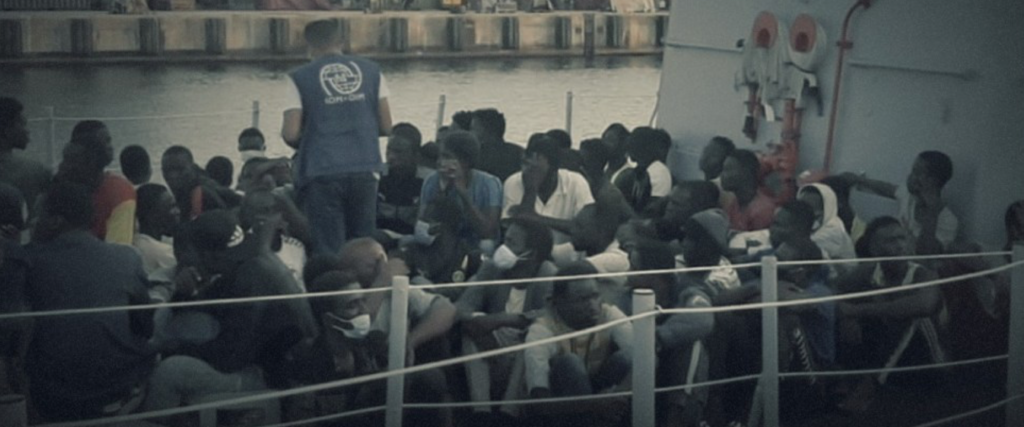
- Aug. 22, the United Nations High Commissioner for Refugees (UNHCR) announced that 120 migrants were rescued from the Mediterranean, and returned to Libya. “Earlier today, some 120 persons were rescued/intercepted by the Libyan Coast Guards in two disembarkation operations,” UNHCR tweeted Aug. 22. “The individuals were returned to the Tripoli Naval Base where UNHCR and its medical partner IRC provided urgent humanitarian assistance,” it added;
- Aug. 16, the body of a young man, identified as Mustafa Mohamed Al-Zubaidi was found inside the trunk of a 2007 Sonata, three days after being reported missing in Tripoli. According to the Al Saaa24 newspaper, signs of torture were apparent on Al-Zubaidi’s body. The victim was found on the highway at the Islamic Quarter in Tripoli.

GERNADA
- Security sources confirmed that 29 prisoners escaped from the notorious, eastern-based Gernada prison Aug. 20 after a riot incident. The sources added that the police in surrounding departments could not help the Gernada prison guards control the riot. The names of the men at large were published later in a document from the prison director that was leaked to the media, calling for recapturing and bringing them back to jail. However, the Deputy Minister of Interior, Faraj Agaiem, denied the prison break at Gernada and his media office said it was just riot by some inmates. He stated that the rumors about the escape were fake.
SIRTE
- Aug. 22, a Libyan National Army (LNA) military committee, led by the LNA’s Chief of General Staff, Lieutenant-General Abdel-Razek Al-Nazori, landed in the coastal city of Sirte to inspect the forces positioned there, according to a statement by the LNA’s General Staff. Al-Nazori held a meeting with several LNA commanders, as well as members of the municipal council, and tribal elders of Sirte. According to the statement, the officers were welcomed by Sirte’s tribal elders upon their arrival, and met with the region’s military commanders. During the meetings, Al-Nazori was briefed on the readiness, and preparations being undertaken by the military and security institutions in the city. As well as the requirements needed to raise the forces’ level of preparedness.;
ZILLA
- Aug. 22, a suicide bombing targeted a security checkpoint belonging to the 128th Infantry Brigade at the entrance of the Zillah area, causing material damage. The Spokesman for the General Command of the Libyan National Army (LNA), Major General Ahmed Al-Mismari, said that “an ISIS [Islamic State] suicide bomber attacked the Zillah Gate (750 km southeast of Tripoli) with a car bomb.” In a post on his official account on Facebook, Al-Mismari added that “there were no casualties, and the terrorist was confronted and seriously injured, as a result of which he died after trying to rescue him in the hospital.”
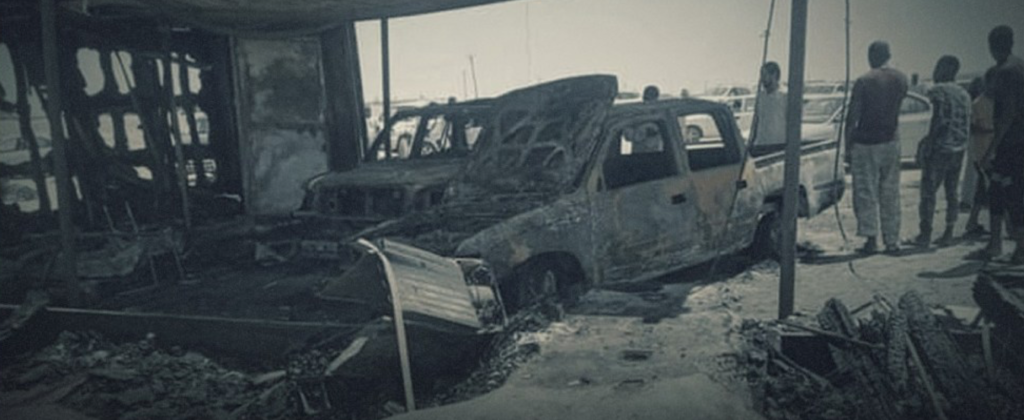
INTERNAL AFFAIRS
- The Head of the Libyan National Elections Commission (HNEC), Emad al-Sayeh, confirmed that the commission will not receive any funds from foreign bodies or countries, but it will “technically” cooperate with the United Nations (UN) mission to benefit from the experiences of other countries. The Libyan official said the Government of National Unity (GNU) supported them with LYD 43m last week, in addition to it received LYD 50m from the outgoing Government of National Accord (GNA). “LYD 43m is sufficient to hold the elections, unless it becomes clear upon receipt of the electoral laws that they contain details that need new financial coverage, and then we will request the needed money from the government,” Al-Sayeh said in statements to Al-Hurra TV;
- Aug. 21, the 5+5 Joint Military Commission (JMC) supervised the release of 17 Libyan prisoners from the western region, according to local sources. The sources added that the recently-released prisoners were detained in the eastern region. Therefore, the members of the commission supervised the process of handing them over to Misrata’s dignitaries. During the event, the JMC members said that the process of exchanging prisoners paves the way to achieving comprehensive national reconciliation. They stressed that they will never abandon their national initiative that aims to end the war and achieve national reconciliation among the Libyan people;
- Head of the Libyan Parliament, Ageela Saleh renewed his demand for the withdrawal of foreign forces from the country, and called on the international community to punish Turkey, and force it to withdraw its forces from Libya. In press statements to Russian media, Saleh added that the justification for the Turkish forces is the agreement concluded with the previous Government of National Accord (GNA), who he said did not have the right to conclude treaties. Such treaties must be approved by the Parliament, which rejected and considered them null and void, he added. Saleh stressed that the Government of National Unity (GNU) led by Abdel-Hamid Dbaiba has not unified the country’s institutions. He added that the unification of these institutions means the participation of all regions in power from ministers, to embassies, to investment companies, and that the government has focused management in one place, and increased centralization;
- The Libyan Parliament has approved a draft electoral law to directly vote for the president, during the upcoming December elections. The Parliament resumed its official session Aug. 17, headed by Speaker of the House, Ageela Saleh, and in the presence of the First Deputy Speaker, Fawzi Al-Nuwairi. During the session, the Parliament approved the draft law, which was then referred to the Legislative and Constitutional Committee for final drafting.
- Aug. 17, the United Nations Support Mission in Libya (UNSMIL) condemned the cutting off of water supplies from the eastern branch of the Great Man-Made River (GMMR). In a statement the mission said that armed actors forced the closure of the eastern branch of the GMMR, “the closure threatens the water security for millions of people in Libya and risks provoking a humanitarian crisis.” UNSMIL added that any obstruction of vital infrastructure, such as the GMMR, is a violation of international human rights and humanitarian law, and is “particularly reprehensible when committed to extort political concessions”;
- Aug. 22, Libyan authorities decided to shut off water supplies to various areas in the country after gunmen demanded the release of a jailed Gaddafi-era official and threatened to sabotage the water network. Supplies to western and southwestern Libya were interrupted overnight Saturday to Sunday, the Great Man-Made River water authority said. The authority took the decision to cut the supply after gunmen stormed several water distribution centres Aug. 19, demanding the release of Abdullah al-Senussi.
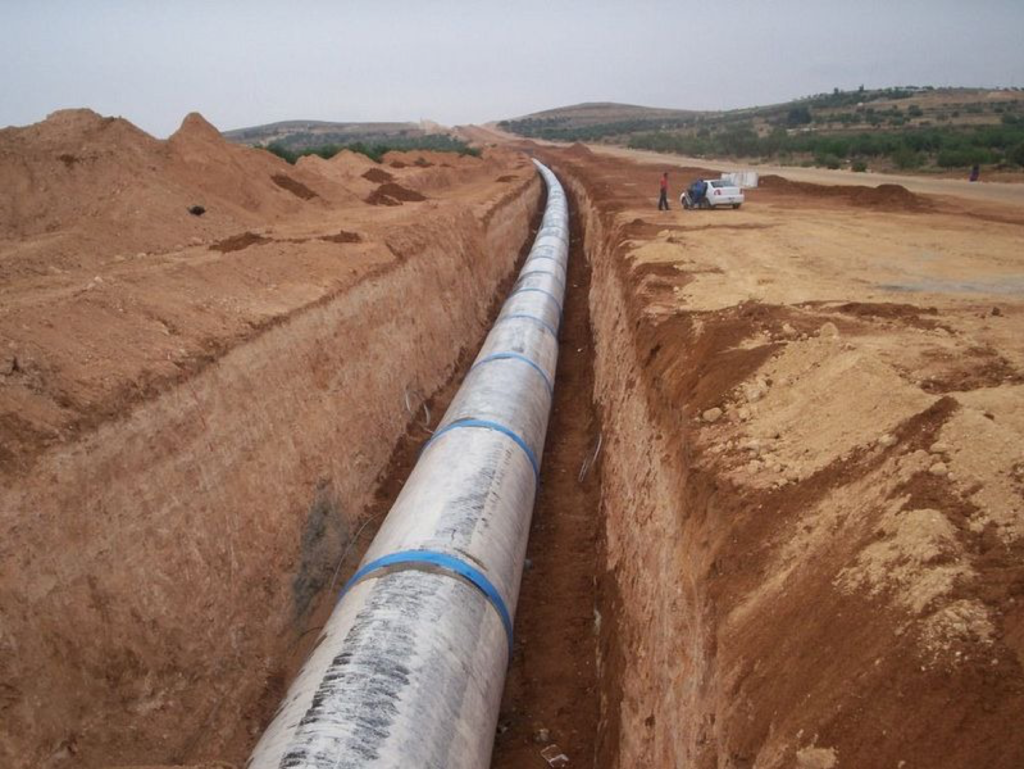
INTERNATIONAL RELATIONS
- Aug. 22, the Head of Libya’s Presidential Council, Mohammed Al-Mnifi, praised the efforts of the outgoing United Kingdom (UK) Ambassador to Libya, Nicholas Hopton, in developing Libyan-British relations during his tenure in Libya. Al-Mnifi stressed the depth of the bilateral relations between the two friendly countries. This came during a meeting with the UK diplomat in Tripoli, ahead of his departure from Libya as his tenure as Ambassador ended;
- Aug. 21, Russian President’s Special Envoy for the Middle East and Africa, Mikhail Bogdanov, and the United Nations (UN) Special Envoy on Libya, Ján Kubiš, discussed preparations for the Libyan presidential and parliamentary elections scheduled for December 24th. During the meeting, they discussed the Libyan settlement process in accordance with the resolutions of the Berlin Conference and the UN Security Council. Both sides also discussed strengthening the cessation of hostilities and establishing a unified army in the country, based on the work of the Libya’s 5+5 Joint Military Commission (JMC);
- The Tunisian border is witnessing a state of cautious anticipation, after reports indicated the intention of terrorist elements inside Libya to enter Tunisia and stir up the situation there. Libyan newspapers reported that the Head of the Arab and International Police had written to the Libyan Interior Ministry, stating that the Tunisian Interpol informed him about the intention of 100 terrorists present at Al-Watiya Air Base, to infiltrate Tunisia via Libya to carry out acts of sabotage. Al-Watiya Air Base is a military in western Libya. It is 27 kilometers East of the Tunisian border and 125 kilometers from the Libyan capital, Tripoli;
- Aug. 21, the Libyan Minister of Foreign Affairs and International Cooperation, Najla Al-Mangoush conducted a telephone conversation with her Tunisian counterpart, Othman Jarandi. They discussed the Tunisian authorities’ continued closure of the Ras Jedir and Dhiba-Wazen common border crossings. Last week, the Prime Minister of the Libyan Government of National Unity (GNU), Abdelhamid Al-Dbaiba, said that the country’s border crossings with Tunisia will open, following strict precautionary measures;
- The United Nations Security Council expressed grave concerns over the impact of the Libyan conflict on neighbouring countries, particularly in the Sahel region. The Council encouraged further international support, and regional cooperation to tackle the illicit transfer, accumulation, and misuse of weapons and the free-flow of armed groups and mercenaries. In its statement, the security council expressed concern at the growing insecurity, terrorism, and maritime piracy in West Africa, the Sahel, and the Gulf of Guinea and encouraged further national and regional efforts to counter those threats;
- Libya reiterated its aspiration to activate the terms of the quadripartite agreement concluded between Libya, Chad, Niger, and Sudan in May 2018, in order to secure their common borders. This came during a speech by the Undersecretary of the Foreign Ministry for Political Affairs, Mohammed Khalil Issa, to the African Peace and Security Council (PSC) from its headquarters in the Ethiopian capital, Addis Ababa, via video conference. In his speech, Issa added that Libya seeks to combat cross-border crimes in various forms, and establish a consultative and practical framework to confront common security threats. He explained that this will consolidate peace, security, and development in the common border areas, and will reduce the loss of lives in the Sahara Desert;
- Aug. 19, the United Nation’s Humanitarian Office in Libya (UNOCHA) said that the recent heat waves across Libya, acute power cuts, the rapid spread of COVID-19, continuous damage to the water system, pose acute threats to people’s lives, and time is running out to act. In a statement, Justin Brady, UNOCHA Head of Office for Libya, voiced his deep concern over the extreme weather and climate change in Libya. He claimed this was at a scale that people and the humanitarian and development communities cannot help manage;
- Egyptian President, Abdel-Fatah El-Sisi held a meeting with Electricity Minister, Mohamed Shaker and Prime Minister, Mostafa Madbouly to discuss the latest developments in the electricity linkage project with Libya. Bassam Rady, the Spokesman for the Egyptian Presidency said Aug. 17 that President El-Sisi discussed the, “current studies to raise the capacity of the interconnection networks between the two neighbouring countries, increase the capacity of the already existing stations, and establish new connection lines with Libya.”;
- Aug. 17, Libya and Malta discussed facilitating the granting of visas to Libyan citizens wishing to visit Malta, in addition to expediting the reopening of airspace between the two countries for commercial travel. This came during a meeting between Libya’s Foreign Minister, Najla Al-Mangoush and Malta’s Ambassador to Libya, Charles Saliba in Tripoli. During the meeting, they discussed the latest developments in the country, with Al-Mangoush claiming that the situation in Libya is improving, especially given the “presence of a single national government that represents all Libyans and is leading efforts to hold the upcoming elections scheduled for 24 December.”;
- Aug. 17, the Prime Minister of the Government of National Unity (GNU), Abdel-Hamid Dbaiba, instructed the Minister of Transportation to resume flights between Libyan and Tunisian airports, starting Thursday. He urged for all precautionary measures to be taken to combat the spread of the COVID-19 pandemic. Dbaiba’s decision was based on the recommendations of the ‘Follow-up Committee on the status of Citizens Stranded in Tunisia’ to reopen the land and air border crossings, given the critical health and humanitarian conditions;
- Carlo Batori, the Italian Consul in Benghazi, met with eastern representatives of the Libyan Business Council Aug. 16, to discuss collaboration with Italian companies on the Coastal Road project. The Coastal Road project proposes to connect villages along the Libyan-Egyptian border with Al-Marj, in eastern Libya;
- Aug. 16, Libya’s Minister of Foreign Affairs Najla Al-Mangoush held a meeting with the Egyptian Ambassador to Libya, Mohamed Tharwat Selim in Tripoli. At the outset of the meeting, the Egyptian Ambassador conveyed the greetings of President Abdel-Fatah El-Sisi and Foreign Minister Sameh Shoukry to the Libyan authorities and people. In turn, Al-Mangoush welcomed the Egyptian Ambassador in his “second homeland,” stressing that he would receive all support in his mission, in order to “enhance the distinguished and friendly relationship that binds the two Egyptian and Libyan peoples.” In turn, Selim revealed that the Egyptian Embassy in Tripoli and the Consulate in Benghazi are being prepared for their official reopening soon.
- Aug. 16, Libya’s High Council of State (HCS) expressed its rejection of the request of the 5 + 5 Joint Military Commission (JMC) to freeze all international security cooperation agreements. Including those signed by the former Government of National Accord (GNA) with Turkey. In a statement, the HCS praised the efforts made by the JMC, with regards to maintaining the ceasefire agreement, re-opening the Coastal Road, demining operations, and expelling mercenaries. It called on the Military Commission to “distance itself from discussing or interfering in political affairs or international agreements.” “If the Commission does not adhere to its competence, it will be considered a tool for a political party and guilty of irresponsibility,” the HCS noted.

